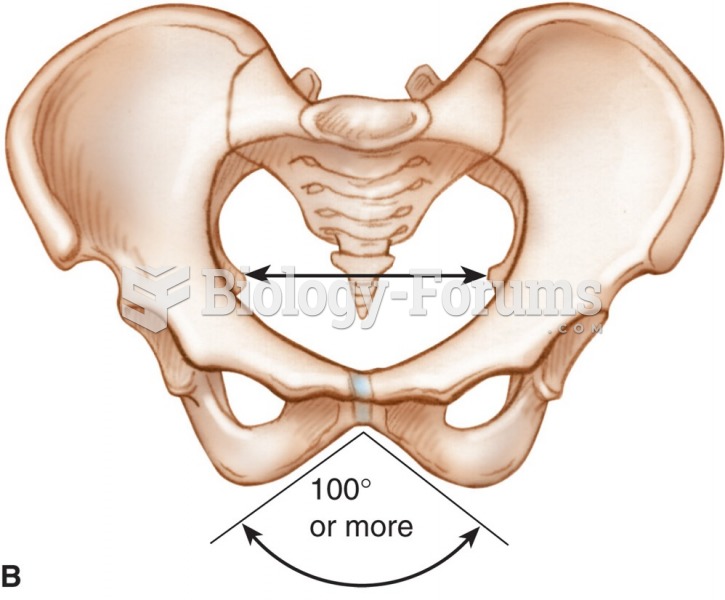|
|
|
There are approximately 3 million unintended pregnancies in the United States each year.
Thyroid conditions may make getting pregnant impossible.
The newest statin drug, rosuvastatin, has been called a superstatin because it appears to reduce LDL cholesterol to a greater degree than the other approved statin drugs.
More than nineteen million Americans carry the factor V gene that causes blood clots, pulmonary embolism, and heart disease.
Bisphosphonates were first developed in the nineteenth century. They were first investigated for use in disorders of bone metabolism in the 1960s. They are now used clinically for the treatment of osteoporosis, Paget's disease, bone metastasis, multiple myeloma, and other conditions that feature bone fragility.
 The phosphorus cycle. Numbers are 1012 g P or fluxes as 1012 g P per year (data from Schlesinger 199
The phosphorus cycle. Numbers are 1012 g P or fluxes as 1012 g P per year (data from Schlesinger 199
 (a) Savanna baboons live in female-philopatric groups, among which males migrate. (b) Chimpanzees li
(a) Savanna baboons live in female-philopatric groups, among which males migrate. (b) Chimpanzees li





